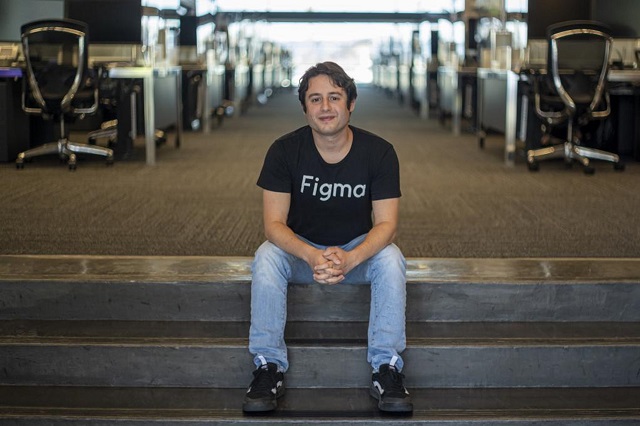Tech billionaires are controversial when they set the condition that startups have to drop out of school to invest
- Tram Ho
On September 15, the design software development company Figma was sold to rival Adobe for up to $ 20 billion. According to Forbes estimates, Dylan Field, one of Figma’s two founders, holds a 10% stake in the company, owning a fortune of $2 billion. Immediately, the boy born in 1992 joined the list of billionaires who dropped out of school with famous names such as Bill Gates – co-founder of Microsoft, Steve Jobs – co-founder of Apple or Mark Zuckerberg – co-founder and CEO. Meta (Facebook’s parent company).
But unlike the billionaires mentioned above, Fiel left the university chair to pursue his passion under the influence of a powerful “force”.
While a student at Brown University in 2012, Field received a Thiel Fellowship, a controversial program founded by billionaire Peter Thiel – co-founder of Paypal, a famous investor of Silicon Valley – in the year 2010. Each year, the program selects 20-30 people under the age of 20 to award $100,000 to help them conduct research and turn business ideas into reality. The condition is that these young people have to leave school.

Peter Thiel, co-founder of Paypal, famous Silicon Valley investor created controversy when he founded Thiel Fellowship. Photo: Getty Images.
The Figma deal attracted attention perhaps also because it came at the “right time”. A few weeks earlier, US President Joe Biden caused controversy when he revealed his plan to write off about $500 billion in student debt, sparking a global debate about the value of higher education. Since 1980, the cost of higher education has nearly tripled in the US, leaving many students with six-figure loan repayments. Before Biden’s aid package, student debt had hit $1.7 trillion, making it the largest source of household debt besides mortgages. Student debt in the UK has also doubled to $182 billion in just five years.
Unsurprisingly, tuition fees have become a “bitter front” in the culture war. Because of that, the story of the guy dropping out of college and turning the PayPal billionaire’s capital into a $2 billion fortune attracted the attention of many people.
Keith Rabois, a well-known technology investor and former colleague of Thiel, posted on Twitter: “Over the past decade, there have been about 250-300 receiving Thiel support. They easily create more value than all the NYU, Columbia, Penn, Brown, and Cornell graduates combined.”
Danielle Strachman – managing partner of 1517Fund, an investment fund sponsored by billionaire Peter Thiel, shared that they are pleased that many people have begun to think about the educational model outside of university. Previously, Danielle and CEO Michael Gibson helped launch the Thiel Fellowship in 2010.
“When we first launched the program, questioning the idea of dropping out of college to start a business was completely alien and monstrous,” she said. “A big part of the show is just opening the conversation: Is college the only path for young people? And when we started building and launching the program, what we really wanted to do was change stereotypes.”
However, the foundation took years to assert its contributions. In 2013, Larry Summers, a former Harvard president and US Secretary of the Treasury, dismissed the program as “the biggest philanthropy mistake of this decade”.
Today, some of the young entrepreneurs who received the grant, such as Field, are beginning to see their hard work bear fruit. The Figma deal set a record as the highest price ever paid to a private tech startup, surpassing the $19 billion Facebook paid for WhatsApp.

Dylan Field has turned the support of billionaire PayPal into a fortune of $ 2 billion. Photo: Getty Images.
Every year, thousands of candidates compete for 20 “scholarships” of the founder of Paypal. Typically, the right candidate will need to have an outstanding business idea, or be doing academic research, working at a nonprofit or a startup. Billionaire Peter Thiel will be the one who has the right to decide the final choice.
Field is not the only one to win big playing this “gamble”.
Another case in point is the virtual currency billionaire Vitalik Buterin behind the $155 billion Ethereum coin and blockchain technology. Last year, Vitalik donated $1 billion in COVID-19 aid to India.
Josh Browder, founder of DoNotPay, a robotics lawyer startup, was born in London, dropping out of Stanford University in 2018 after winning a Thiel Fellowship. “Earning a lot of money is great, of course, but the most important thing is having a group of people who believe you can build a big business at 19,” he says.
Josh gets a lot of support from Thiel’s mentors and other fellows through courses, group chats, and monthly meetings to discuss the conundrums of starting a business at a young age. age.
DoNotPay was valued at $210 million last year after raising money from Andreessen Horowitz and other venture firms. Browder, through his own investment firm, has invested in 23 other companies founded by Thiel fellows.
Source : Genk
